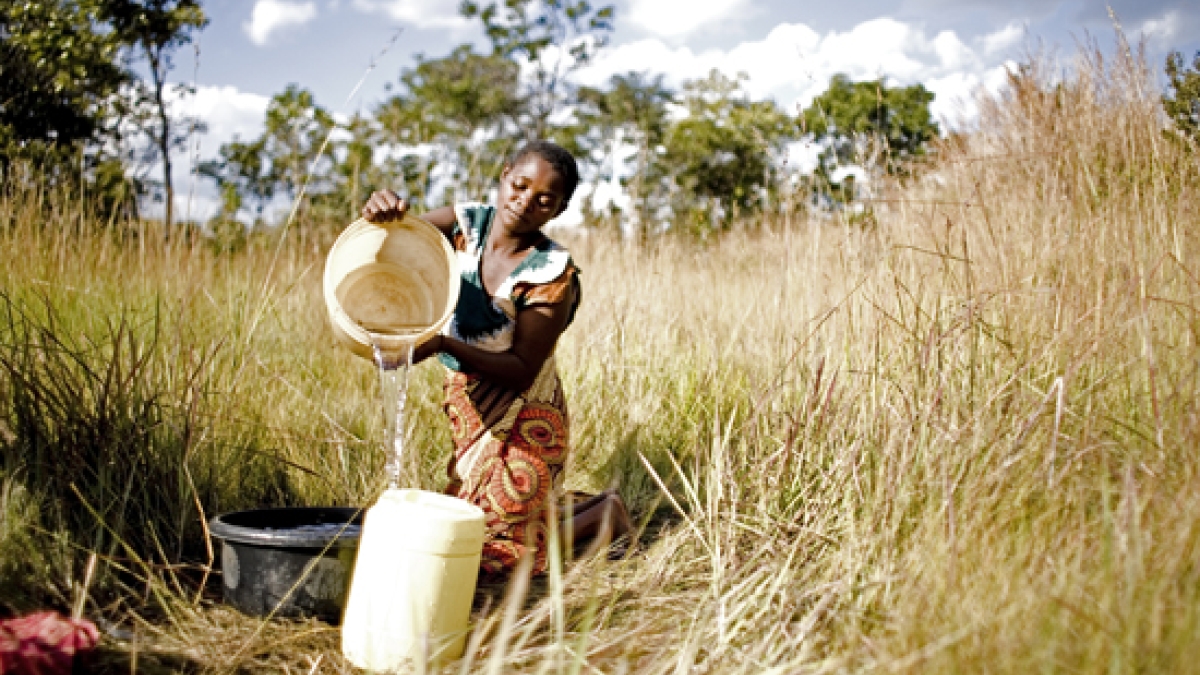Helping others comes naturally for ASU alum

For Deanna Dent, volunteering has always been a part of life. Growing up in Tempe, Dent watched as her parents spent years working to bring her extended family members from her mother’s native Colombia to Arizona. Once they arrived, Dent’s family continued to help out where they could, making sure they were settled in their new homes, working with them on construction and repairs, and even translating for elder family members at doctors’ offices.
“I think it instilled in members of our family a desire to assist those who needed help,” says Dent.
That desire stayed with Dent throughout the years and, upon graduating from ASU's Walter Cronkite School of Journalism and Mass Communications with dual degrees in photography and journalism, she made the decision to enter the Peace Corps.
“I attended one meeting at ASU concerning Peace Corps years ago and the Returned Peace Corps Volunteer who spoke to us at the time made volunteering sound daunting to anyone outside of an engineering or medical degree. It turns out that there are so many different programs and training that that wasn't necessarily the case at all,” she said. In fact, Dent made good use of her photojournalism skills while volunteering, documenting her time in Zambia, Africa in a series of strikingly expressive photographs.
After a lengthy application process involving several medical tests, Dent was accepted as a volunteer for the Peace Corps and arrived in her assigned country of Zambia, Africa in February 2011 to work with the Rural Education Development Program there. What followed next was an 11-week-long training period that focused on teaching volunteers about ministry standards, cultural education and language specialization. Two months into that training, Dent paid a visit to the village of Samuteba, where she would soon be volunteering with the Lunda tribe. She recalls the experience as “surreal.”
“Literally all the children from the school, nearly 500, surrounded the vehicle when I came,” she said. “Members of the community came and sang songs. I couldn’t believe the enthusiasm and was greatly intimidated by it.”
But not so intimidated that she didn’t come back. Once her training was complete, Dent got to work in Samuteba, teaching English at the village’s school. After an attempt to initiate a pen pal program with students in America didn’t pan out, Dent decided to focus on the Kamulumi Women and Youth group, teaching young girls of the Lunda tribe the basics of self-esteem, assertiveness and leadership, as well as sexual and reproductive health.
“I spent many days just doing art projects or answering questions with the girls. I was fortunate to work with amazing teachers who were strong enough not to be shy in teaching girls about HIV/AIDS, STIs and pregnancy,” she said.
Dent also found time to help the members of the women’s group develop their fish farming venture, and even organized agriculture and livestock training for the villagers. “One of the beauties of the Peace Corps is that it gives you the freedom and leeway to do whatever work you and your community decide is best,” she says.
Though, her time there was not without its challenges, the largest of which was simply maintaining basic needs, like water. With no electricity or running water, Dent recalls spending 30 minutes to an hour each day drawing water from a well and transporting it home for cooking, cleaning and drinking. Six days a week were dedicated to field work, which could take anywhere from four to eight hours a day, not including the 40 to 60 minute walk to get to the field.
Food in Samuteba was also an adjustment for Dent. The traditional meal in the village is a corn meal mixture, called nshima, which is rolled into small balls and then rolled through different relishes. Also, because the Lunda tribe is mostly Christian, special occasions usually involved the butchering of an animal, such as a cow, that is then cooked and shared among the members of the church.
When asked how her time as a student at ASU prepared her for her time with the Peace Corps, Dent cites the sense of independence she gained through real-world experiences, like registering for classes and living away from home for the first time. One of the most important things she learned while in Zambia has to do with the universal nature of humanity: “Every individual around the world is so much more like every other individual around the world than most would like to admit … but [it is] sometimes hard to incorporate into the way we treat one another anywhere in the world,” she says.
Dent believes in the power that volunteering has to help individuals appreciate the world as one, large community that we are all a part of. “I think as Americans one of our best, and at times worst, characteristics is an individualistic nature,” she said. And, according to her, what volunteering in the Peace Corps offers is ultimately a “cultural exchange” that can help to change that.
Now that her two years in the Peace Corps is up, Dent has no plans of slowing down, asserting, “I have no doubt that I will be doing some sort of volunteer work for the rest of my life, in one way or another.”